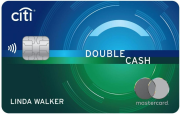The content on this page is accurate as of the posting date; however, some of the offers mentioned may have expired.

If you have ever come across tons of credit card offers in your mailbox then you are absolutely aware of the fact that banks, credit unions and other lenders never relent in their efforts to get you signed up. Signing up requires giving these companies access to your personal details.
Credit card companies are noted for targeting college students and alumni with millions of offers. These companies target students so frequently, that analysts wonder how these companies actually get their hands on the personal details of students. Well the answer is simple, the majority of universities, colleges, alumni groups and other academic foundations in higher education choose to partner with credit card companies and banks in mutually beneficial relationships. The universities get funding, and the credit card companies have access to millions of new students every year. In fact, most of these companies operate in a way similar to how spam emails fill the inboxes of most email users.
Colleges and universities seem to be signing contracts with credit card companies left and right, especially in the last couple of years. In fact, a report by the Federal Reserve indicated that 374 of these institutions signed various contracts with these lenders in 2010, while the number of alumni associations that began similar relationships with lenders within the same period was 364. In fact, there are over 1,000 of such contracts currently existing between different credit card issuers and higher education institutions. Experts believe this number will only increase in the next couple of years, unless some drastic measures buck the trend.
Many people are aware that the CARD Act of 2009 outlawed guerilla-marketing tactics targeted towards college students, but that is not completely true. It’s true that the Act has revolutionized the way credit card companies and lenders go about their business in a college setting, but the Act mainly regulates the charges levied against credit card consumers and demands that consumers know exactly what the terms and conditions of their cards mean before signing up for them. The Act also ensures that consumers who cannot support themselves financially, and have no guarantee from relatives are not issued credit cards by lenders. In the past, credit card companies offered attractive credit packages to students in an attempt to make their credit card offers irresistible. The CARD Act outlawed such practices, and research found that these student credit cards were contributing to the high rate of student debt. However, the strong partnerships being built by credit card companies and higher education institutions means that the credit card companies still have exclusive access to students personal information.
So why would reputable higher education institutions decide to give credit card companies access to students and alumni information? Reports indicate financial institutions shelled out $55 million in 2010 alone for contracts signed with colleges, universities and alumni associations. The schools get access to extra cash for such deals, and financial institutions also multiply their profits from higher rates of credit card signups especially among students. This results in a win-win situation for all parties involved, except the student. Therefore, students should look out for themselves by making sure they don`t sign up for every offer that comes their way, without taking the time to read all terms and conditions before signing up for credit card offers.





